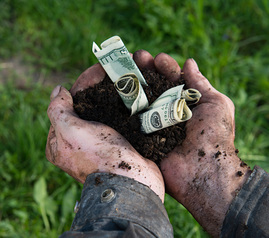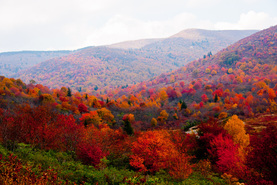When you place a conservation easement on your land, you are donating your land to conservation. That usually means you prevent it from ever being subdivided or developed. This is a great way to protect your land and its resources. It’s also a great way to fill your pockets with much-needed cash.
But how much are we talking? A conservation easement in Virginia comes with highly valuable tax credits. In fact, Virginia’s Land Preservation Tax Credit (LPC) is the most substantial in the entire country. The lover’s state offers tax credits worth a generous 40% of the value of the charitable donation. For example, if the value of your conservation easement is $80,000, you could receive $32,000 worth of tax credits. Tax credits can be sold for cash in hand right away.
That means as soon as you donate your conservation easement, the tax credits can be sold immediately, giving you the funds you need to make improvements, purchase equipment, or to spend on whatever your heart desires.
But the profit doesn’t stop at state tax credits. A conservation easement can also give you valuable federal tax benefits. You could expect a huge federal tax deduction, potentially equal to 100% of the value of the donation. For example, if the value of your donated easement is $80,000, you could potentially qualify for a federal tax deduction of $80,000. (The value of the easement is determined by an appraisal of your property).
A conservation easement could benefit you tremendously in terms of finances, but it can benefit you and future generations even more significantly by preserving the integrity of the land you donate. A conservation easement offers permanent protection for your land and all its resources, including water, timber, migration routes, air quality, and of course, its natural beauty.
Interested? We can help you donate a conservation easement and guide you through the process of selling tax credits. Contact us for a free consultation.



 RSS Feed
RSS Feed